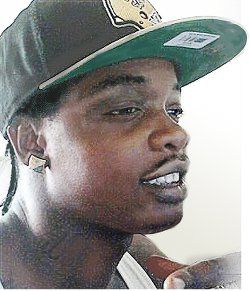Court obstructs justice in Akai Gurley case
For a brief time last February, there was hope that, at last, Black lives do matter, when a jury convicted officer Peter Liang of manslaughter and official misconduct in the fatal shooting of 28-year-old Akai Gurley. The New York City police officer was facing a possible 15-year jail sentence for the shooting and his subsequent failure to seek medical help for Gurley. It was reported that, as the young Black man lay dying, the cop, instead of calling 911, was texting the police “union” looking for legal help.
But the jury that had convicted Liang was overruled. First, Brooklyn District Attorney Ken Thompson called for only probation, six months of house arrest and 500 hours of community service for Liang. Then, on April 19, Brooklyn state Supreme Court Justice Danny Chun took the unusual move of reducing the jury’s manslaughter verdict to criminally negligent homicide. He then dropped the house arrest and sentenced the officer to just 800 hours of community service and five years of probation: No jail time or confinement of any kind for taking the life of Akai Gurley.
Gurley was killed on Nov. 21, 2014, when Liang pulled his gun and fired a single shot, accidentally he claimed, and the ricocheting bullet hit the young Black man in the chest. It all happened in the darkened stairwell of a public housing unit in Brooklyn. Gurley and a friend had been trying to navigate the stairs in the dark because the elevator was out of service — a common occurrence in underfunded low-income housing.
Just two weeks after Gurley was killed, a grand jury in another New York borough, Staten Island, refused to indict a white cop in the chokehold killing of another unarmed Black man, Eric Garner, leading to widespread protests.
So when Liang was indicted and brought to trial, it seemed possible that finally a cop would be jailed for killing a Black man. But then the judge upended the jury’s verdict, leading to anger and more protests.
Gurley’s aunt, Hertencia Petersen, reacted to the judge’s lenient sentence: “Now here it is. Another Black man has been murdered by the hands of a police department and the officer is not being held accountable.”
That night, a crowd went to the neighborhood where DA Thompson lives and demonstrated outside his home, chanting, “If the family of Akai Gurley cannot sleep tonight, Ken Thompson will not sleep tonight!” Police arrested seven of the protesters. It is even possible that the protesters will spend more time in jail than the cop who shot a person and then allowed him to bleed to death.
“Black lives matter” is not just a slogan. It is a demand that the racist system which is falsely called “criminal justice” be uprooted and that true justice be served. Until there’s justice, there will be no peace.


